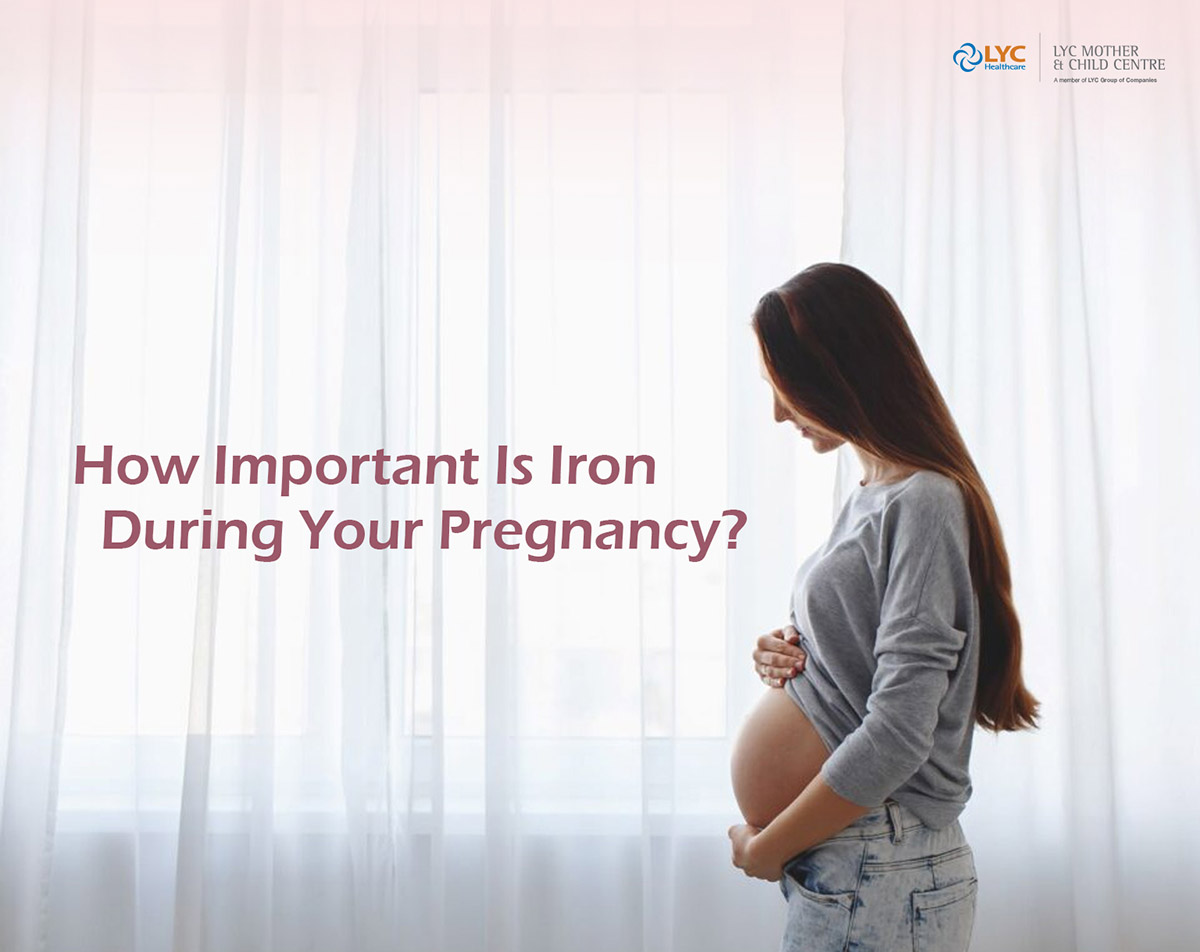
Answer: Iron is an essential element that plays an important role in many bodily functions. The body needs iron for the synthesis of haemoglobin, DNA, and other enzymes that stimulate various chemical reactions. Haemoglobin is an iron-rich protein found in red blood cells that is crucial for transporting oxygen from our lungs to the other organs in your body. A decrease in haemoglobin levels caused by iron deficiency results in a condition called anaemia. Anaemia can be a life-threatening condition if it is not treated as the heart and other vital organs can get deprived of oxygen. It can also affect your quality of life with symptoms like fatigue, hair loss, memory loss.
Pregnant women have higher needs for iron, so they may become deficient. During pregnancy, the iron intake from the general diet cannot meet the increased iron requirement, and they are more likely to suffer from anaemia due to iron deficiency.
Answer: During pregnancy, both the mother and the fetus have high demands for iron as they go through continuous growth and development. Additionally, the red cell mass and plasma volume can expand due to an increase in the production of red blood cells in pregnancy, which further increases the demand for iron. To meet this increased demand, the body increases iron absorption and also utilises stored iron.
This process of iron homeostasis is regulated by a hormone called hepcidin. However, during the second and third trimesters of pregnancy, hepcidin concentrations become lower than normal. The combined effect of increased demand for iron and suppressed levels of hepcidin results in iron deficiency anaemia.
Findings from recent studies indicate that both low and high iron levels can negatively impact pregnancy outcomes. Excess or inadequate iron levels can result in low birth weight, stunted growth, and an increase in the likelihood of developing gestational diabetes.
Answer: Most people obtain their daily iron intake from food.
Increased requirement of iron during pregnancy can be met by consuming iron-rich foods. But not all iron-rich foods are safe for pregnant mothers.
There are two types of iron found in food, haem iron, and non-haem iron. Haem iron can be found in meat, fish and eggs, while non-haem iron is found mostly in plant-based foods. Haem iron is more easily absorbed than non-haem iron, making meat a richer source of iron than plants.
Meat, including beef, poultry, and liver, is one of the richest sources of iron. Seafood such as shrimps, tuna, oysters, clams, and other types of fish are also rich dietary sources of iron. However, consuming raw fish and meat is not safe during pregnancy due to the risk of Listeria infection. Listeria may cause only mild symptoms in pregnant women but can have potentially life-threatening consequences for newborns.
For vegetarians, vitamin C rich foods such as citrus fruits can increase absorption of non-haem iron from plant-based foods. Vegetables such as spinach, kale, broccoli, sweet potatoes, green beans, pumpkin seeds, and peas are rich sources of non-haem iron.